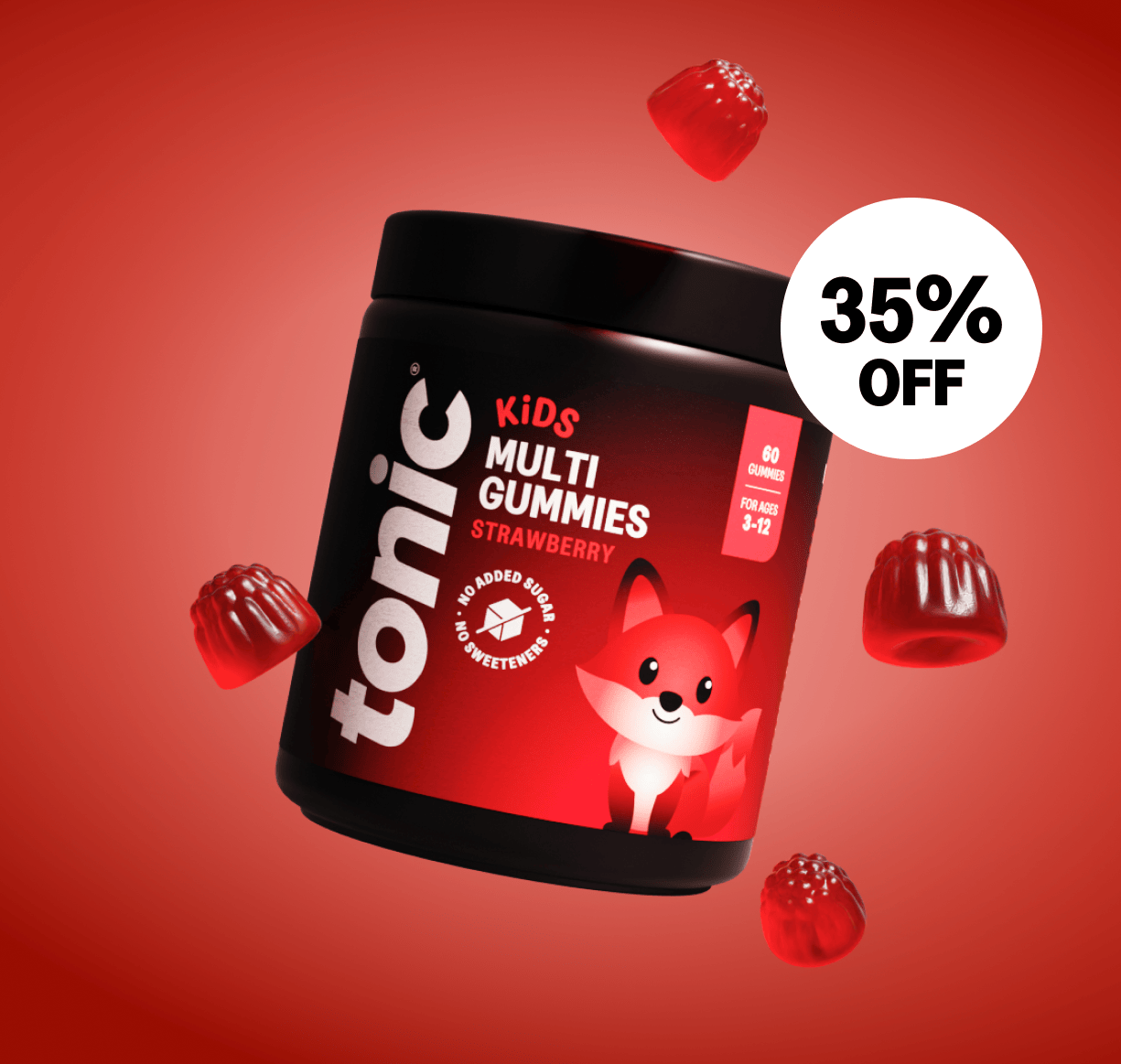As the nights draw in and the temperature drops, autumn and winter bring cosy sweaters, hot drinks and, unfortunately, an increased risk of colds and flu.
Shorter days, less sunlight, colder weather, and spending more time indoors (especially if windows are closed) all contribute to a rise in infections. Dry indoor air can also dry out your mucous membranes, making it easier for viruses to enter the body. Add seasonal shifts in sleep patterns and melatonin levels, and it’s no wonder our immune system faces extra challenges.
Autumn and winter are the perfect reminder to focus on immune-focused nutritional support. Here is your checklist of some of the key nutrients to help your body stay resilient and why they matter.
Vitamin C: the everyday defender
Vitamin C (ascorbic acid) is a water-soluble vitamin and a powerful antioxidant. It supports your immune system by:
- Protecting cells from oxidative stress
- Supporting the production and function of white blood cells
- Helping your body respond to infections efficiently
Food sources: Citrus fruits (oranges, grapefruits, lemons, limes), kiwi (keep the skin on and your gut bacteria will love you for it), strawberries, bell peppers, broccoli, kale, and Brussels sprouts.
While most people can get enough from diet alone, supplementation can help during periods of high stress or low fruit and vegetable intake. As it’s water-soluble, what your body doesn’t use will be urinated out, so a daily top-up is needed.
Want to know more about vitamin C? Check out our other article.
Vitamin D: the sunshine vitamin
Vitamin D is essential for immune regulation, helping your body respond effectively to pathogens. It supports:
- Activation of immune cells and antimicrobial peptides
- Reduces inflammation
- Supporting respiratory health
Food sources: Fatty fish (salmon, mackerel, sardines), eggs, some dairy, and mushrooms.
Although let’s be clear, the amount of vitamin D you can get from food is not enough to reach your daily needs. In the summer, sunlight helps your body produce vitamin D naturally. But during autumn and winter in the UK and the northern hemisphere, sun exposure is insufficient for most people. Factors such as skin tone, age, and time spent outdoors influence how much vitamin D you make. Supplementation is recommended, with doses tailored to individual needs to maintain optimal immunity.
Vitamin A and beta-carotene: the barrier builders
Vitamin A plays a vital role in maintaining the integrity of the mucosal surfaces in your respiratory and gastrointestinal tracts, which act as your body’s first line of defence against infections. Beta-carotene, a precursor to vitamin A, also acts as an antioxidant.
Food sources: Carrots, sweet potatoes, pumpkin, red peppers, spinach, kale, and liver (make it organic).
Adequate intake helps keep skin, eyes, and respiratory surfaces healthy, supporting your immune system’s ability to prevent infections from taking hold. Including a variety of colourful vegetables ensures you’re getting enough beta-carotene alongside other beneficial nutrients.
Vitamin E: the immune booster
Vitamin E is a fat-soluble antioxidant that protects immune cells from oxidative damage and supports their function. It helps your body:
- Maintain a strong immune response
- Reduce inflammation
- Protect cells from stress
Food sources: Nuts (almonds, hazelnuts), seeds (sunflower, pumpkin), spinach, broccoli, avocado, and olive oil.
Vitamin E is often overlooked because it’s less talked about than vitamins C or D, yet it’s a key player in supporting your immune system and overall health. Adequate vitamin E intake can help reduce low-grade inflammation, support healthy blood vessels, and maintain proper immune function. Including a variety of nuts, seeds, and green vegetables regularly ensures you’re not missing out on this essential nutrient.
Bring these vitamins into your diet
Autumn and winter are the perfect reminder to give your immune system some extra support. A balanced diet rich in colourful fruits and vegetables, nuts, seeds, and healthy fats provide many of these nutrients naturally. Supplementation, particularly vitamin D, may also be necessary when sunlight and dietary intake are insufficient.
Practical ideas you can easily adopt include:
- A weekly immune-loving bowl with bone broth, fish and vegetables, topped with seeds.
- A daily citrus fruit or kiwi (FYI, kiwi has more vitamin C than an orange).
- A snack bowl of nuts, carrot sticks and hard-boiled eggs.
Staying hydrated, prioritising sleep, managing stress, and maintaining activity remain essential to enable these nutrients to serve you best. The combination of good nutrition, lifestyle habits, and rest gives your immune system the best chance to keep you healthy through the colder months.
Natalie Louise Burrows, Nutritionist and Clinic Director at Integral Wellness






1 comment
Kathleen Golling
Thank you so much.
Leave a comment
All comments are moderated before being published.
This site is protected by hCaptcha and the hCaptcha Privacy Policy and Terms of Service apply.